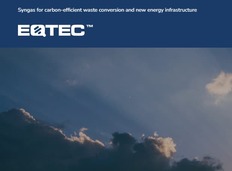- The project aimed to transform 200,000 tonnes of RDF per year into up to 25MW of electricity.
- All relevant permits and permissions had been secured, with £4m invested.
- The lease option is at risk due to the NPg contract termination.
- Discussions with Scott Bros continue on recovering investments.

Project Overview
EQTEC has decided to cease activity on its Billingham project at Haverton Hill, UK. The project aimed to create a refuse-derived fuel-to-combined-heat-and-power facility, transforming 200,000 tonnes of RDF per year into up to 25MW of electricity for export to the national grid.
Investment and Permits
All relevant permits and permissions for the plant, which had the potential to generate up to 34MW of thermal energy, had been secured. The company had invested approximately £4 million into the development.
Challenges and Setbacks
The decision to halt the project comes amidst increasingly challenging market conditions in the UK and recent setbacks that make it unfeasible for EQTEC to prioritize this project over its broader strategic opportunities. The project's option to lease the land owned by Billingham EFW, a subsidiary of Scott Bros, is also at risk due to the NPg contract termination.
Next Steps
EQTEC remains in discussions with Scott Bros about options for recovering as much as possible from the investments made in the land and project. The company aims to focus on its broader strategic opportunities and reduce its risk profile.

